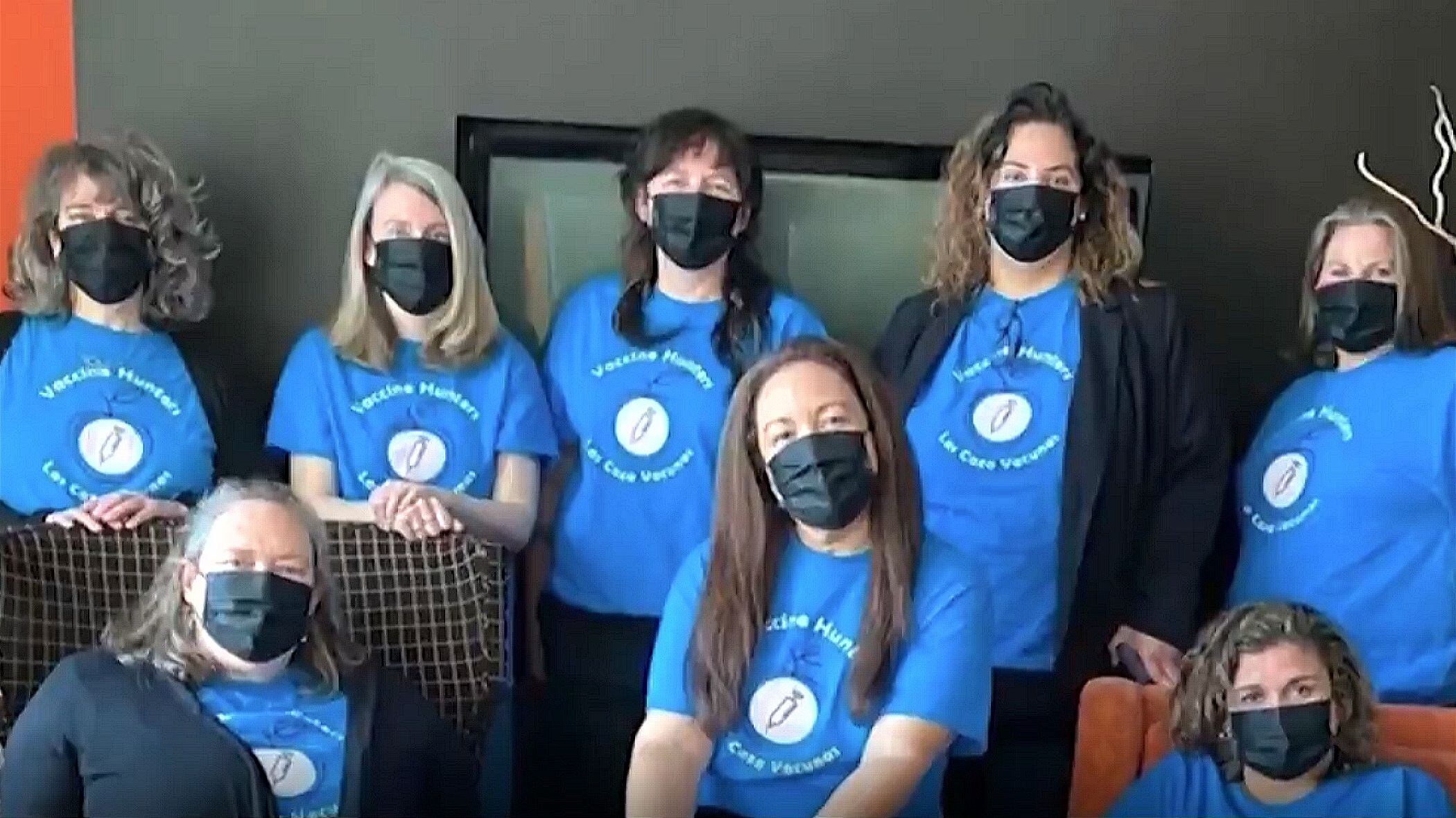In between trying to engage high school students via Zoom and managing family life during an ongoing pandemic, which includes overseeing virtual schooling for their own children, a group of educators decided they weren't quite busy enough.
So, they started helping people in their local communities find and secure COVID-19 vaccine appointments. The movement largely emerged after they received the vaccine themselves.
"We posted on Facebook, 'we got our vaccine,'" remembered Maria Peterson, a high school Spanish teacher. "People started reaching out to us, wondering, how did you get an appointment? How did you do it? We were not aware that it was such a big deal."
The Vaccine Hunters, Las Caza Vacunas in Spanish, was born. Organized by fellow teacher Maisie Lynch, this group banded together to fill a void in the vaccine rollout in suburban Maryland, just outside Washington, DC. People wanted to get the shot but couldn't secure vaccine appointments in the piecemeal system used by the state.
"I think people are feeling really frustrated when they've tried day after day after day, and they haven't gotten a spot," explained Kathleen Bartels, another high school Spanish teacher, about the messages they hear from people asking for their help. "They've waited on hold on the telephone, they've gotten all the way to the last screen of the application, and there are no more appointments."
Tanya Aguilar, another Vaccine Hunter and fellow high school Spanish teacher agreed."Part of the problem here that we've confronted that we're dealing with is that digital divide with our seniors. They had a hard time getting the appointment to begin with, and we help them," Aguilar said.
In the short time the Vaccine Hunters have been on the hunt, they have secured more than 500 appointments, helping hundreds of Marylanders get the vaccine. In this work, they discovered numerous barriers in the system, especially for Spanish speakers.
"The technology that the state and the county are using to schedule these doses online, the Spanish was incomprehensible," Bartels recalled.
With the insight gained from speaking with residents and their families, the Vaccine Hunters have met with officials in Montgomery County, Md., where they teach. The county is the largest in the state. They have been able to advocate for increased education and awareness campaigns to reach vulnerable populations. It has already had an impact.
"When we noticed that the [phone] messages coming in were mainly from Spanish speakers, that's one of the things that we told the county," said Bartels. "There seems to be a need for a phone hotline. And it seems that that would serve basically all of the senior citizens, not just the Spanish speakers."
While the county uses their experiences and data to better serve the community as a whole, the Vaccine Hunters are able to continue to reach people on a one-on-one basis — and they are able to reach more people because the group is versatile and diverse.
"We can answer emails in English. We can answer emails in Spanish. We can make phone calls in English and Spanish," Peterson said.
"In being Latina and there being Latinas on the Vaccine Hunters, I think the Latinos that have reached out to us, they identify with us, and they feel a sense of comfort," Aguilar added. "When we talk to these elderly Latina and Latino, 'abuelitos' we say, I feel like I'm talking to my grandma. I feel like I'm talking to my mom, my granddad, my dad."
Aguilar explained that she does this work with her mother in mind. Though she died a few years ago, Aguilar likes to believe that someone would help her mother in Massachusetts like she is able to help people in her home state.
Peterson, Bartels, and Aguilar all teach full time. They are parents, spouses, friends, and live busy and full lives. But they still make time for the hunt, every day. They believe being teachers makes them uniquely able to help secure these appointments.
"I also think you need eyes in the back of your head. Like in the classroom, you're paying attention to something, but you absolutely have to be paying attention to this thing over here," Bartels said with a smile. "That's working for us right now because we have so many browser windows open. And we're just, like, clicking around all day, every day."
"Every single day is a different day, which is why I love to teach," Aguilar explains. "There's never a dull moment. With this as well, with the vaccine, every day's a different day."Peterson believes teachers have no time for nonsense, and that serves them well in the vaccine hunt likewise.
"There's no overanalyzing it. Let's have it done," she said. "We know how to organize; what do we need to do?"
It has led to some long days and nights.
"We get up super early to hunt, let me tell you. So this morning we were already up at 6:00 and by 7:30, I think collectively, we had made at least 50 to 60 appointments," Aguilar explained.
Every evening, they're back at it again.
"We have our debrief, and then there we go hunting again. Sometimes until 1:00, 1:30 in the morning. And so we're truly dedicated to this," she said.
But even with the late nights and the early mornings, the Vaccine Hunters know they are making a difference. They wouldn't change a thing, evidenced by the stories they tell with pride.
"There's this gentleman, Philip, he's 88. He's been married 68 years. He's in hospice for cancer," recalled Peterson. "He called back to thank us because he was like, now my wife can come see me."
"Those are the stories that stay in our heart," she said.



